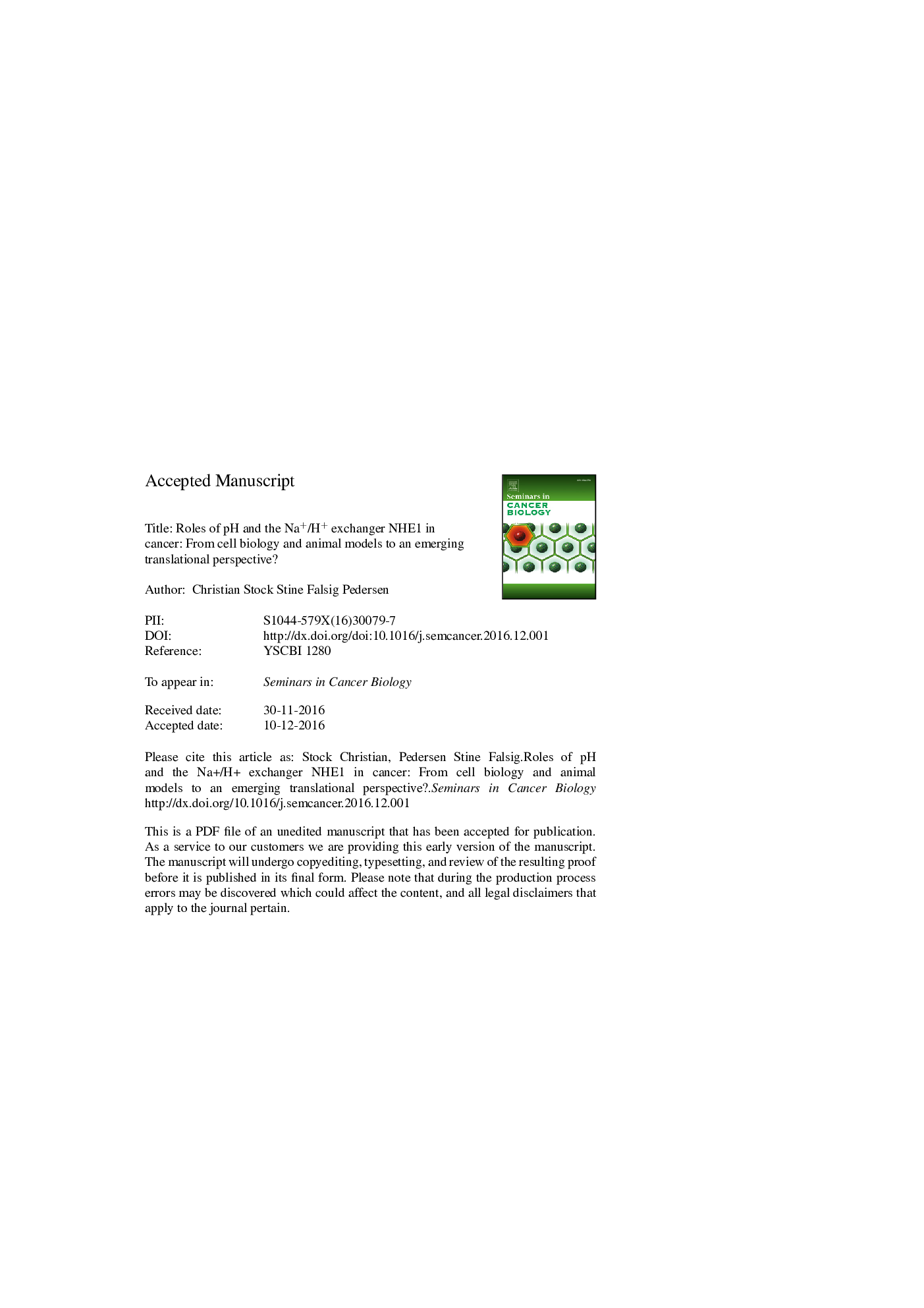| Article ID | Journal | Published Year | Pages | File Type |
|---|---|---|---|---|
| 8361913 | Seminars in Cancer Biology | 2017 | 34 Pages |
Abstract
Acidosis is characteristic of the solid tumor microenvironment. Tumor cells, because they are highly proliferative and anabolic, have greatly elevated metabolic acid production. To sustain a normal cytosolic pH homeostasis they therefore need to either extrude excess protons or to neutralize them by importing HCO3â, in both cases causing extracellular acidification in the poorly perfused tissue microenvironment. The Na+/H+ exchanger isoform 1 (NHE1) is a ubiquitously expressed acid-extruding membrane transport protein, and upregulation of its expression and/or activity is commonly correlated with tumor malignancy. The present review discusses current evidence on how altered pH homeostasis, and in particular NHE1, contributes to tumor cell motility, invasion, proliferation, and growth and facilitates evasion of chemotherapeutic cell death. We summarize data from in vitro studies, 2D-, 3D- and organotypic cell culture, animal models and human tissue, which collectively point to pH-regulation in general, and NHE1 in particular, as potential targets in combination chemotherapy. Finally, we discuss the possible pitfalls, side effects and cellular escape mechanisms that need to be considered in the process of translating the plethora of basic research data into a clinical setting.
Related Topics
Life Sciences
Biochemistry, Genetics and Molecular Biology
Biochemistry
Authors
Christian Stock, Stine Falsig Pedersen,
